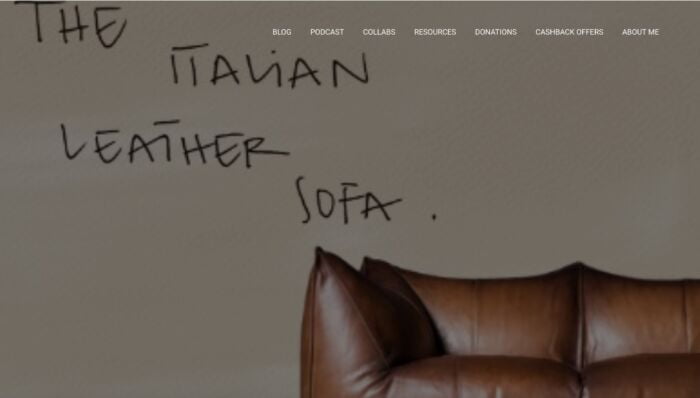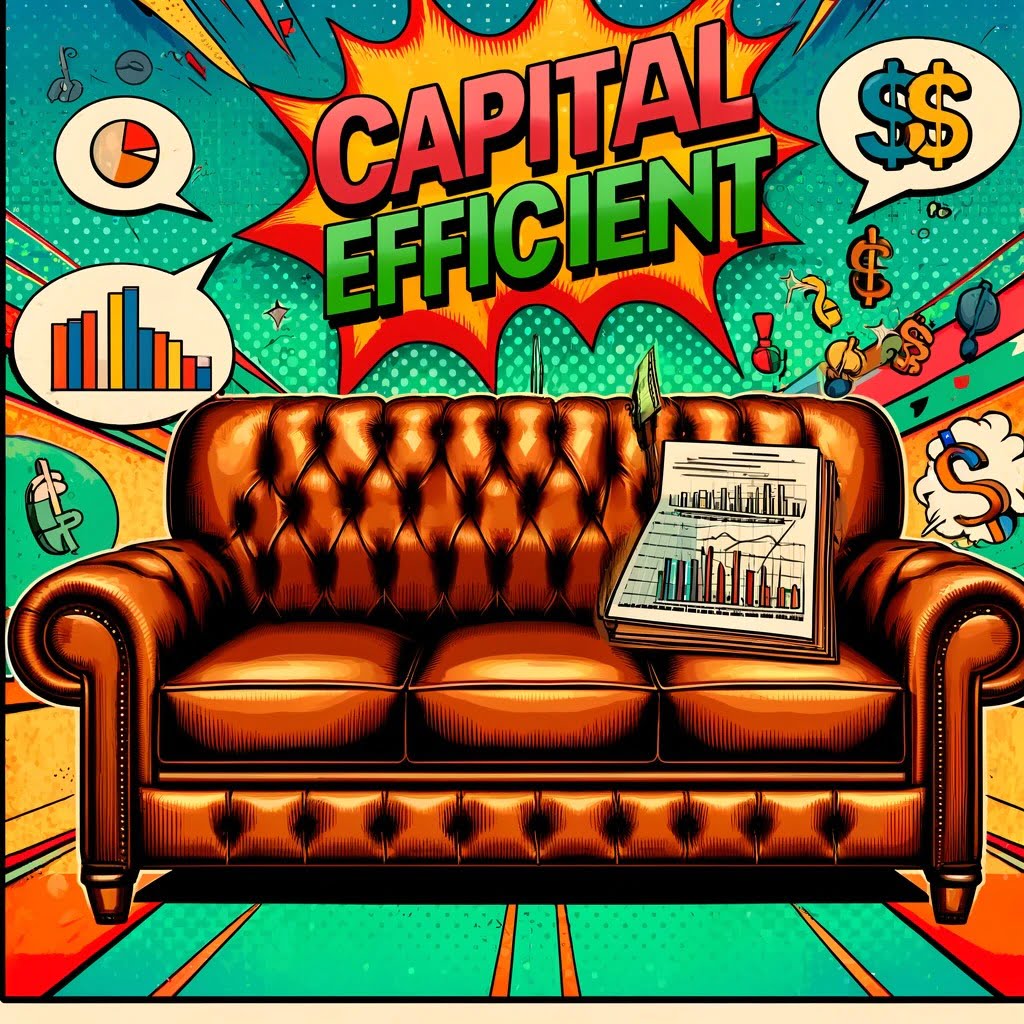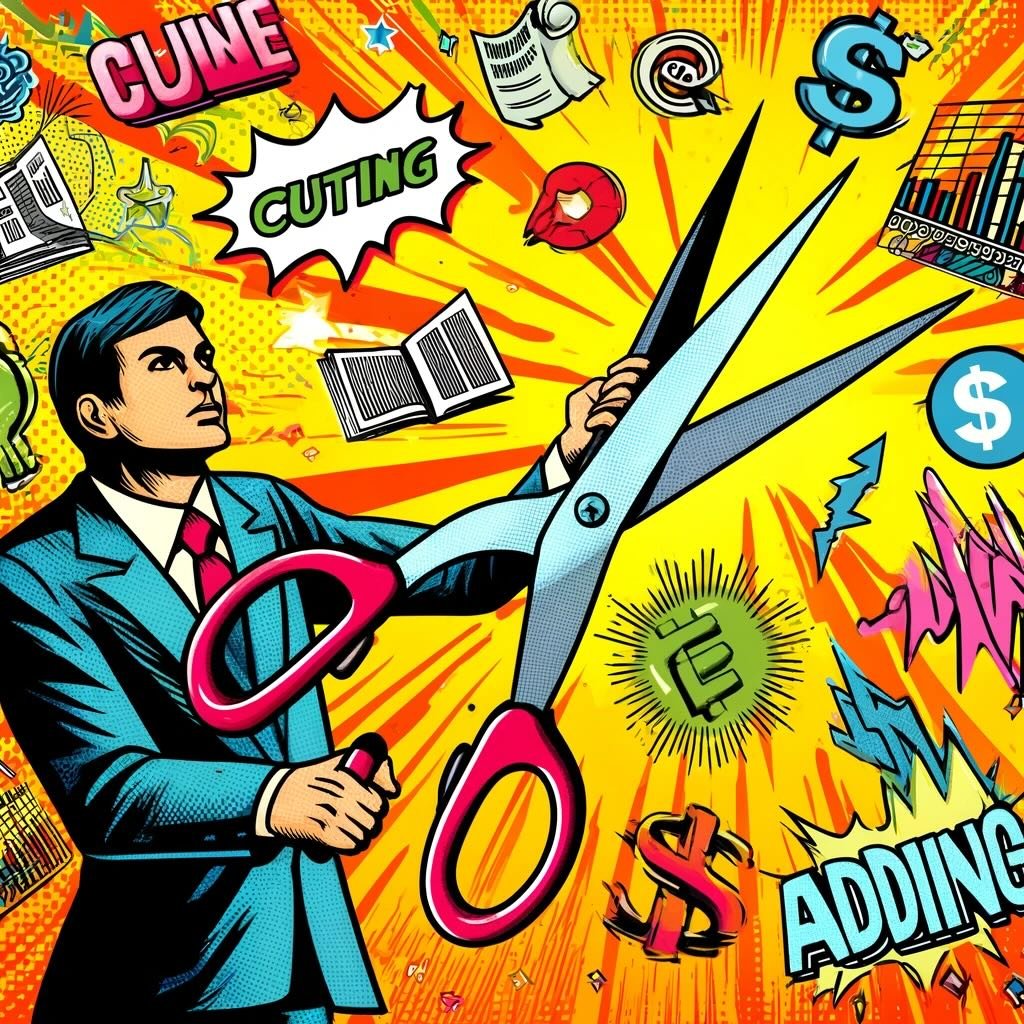Connecting with amateur investors around the world has been one of the greatest gifts of starting this site.
Sometimes it’s easy to get caught up in an echo chamber where I’m pondering investing concepts from a mostly a North American perspective.
It’s fascinating to hear how investing on the other side of the pond brings about its own unique opportunities and challenges.
Today, I’m thrilled to welcome Nicola Protasoni of The Italian Leather Sofa investing blog to the “How I Invest” series.
He’s assembled a fascinating and highly diversified capital-efficient portfolio mostly consisting of US-listed ETFs.
Because he’s based in Switzerland, he has access to these funds whereas most other Europeans do not.
Without further ado, let’s turn things over to Nicola to find out how he’s put all of the puzzle pieces together.

The Italian Leather Sofa Portfolio: How I Invest with Nicola Protasoni
Hey guys! Here is the part where I mention I’m a travel content creator! This “How I Invest” interview is entirely for entertainment purposes only. There could be considerable errors in the data I gathered. This is not financial advice. Do your own due diligence and research. Consult with a financial advisor.
These asset allocation ideas and model portfolios presented herein are purely for entertainment purposes only. This is NOT investment advice. These models are hypothetical and are intended to provide general information about potential ways to organize a portfolio based on theoretical scenarios and assumptions. They do not take into account the investment objectives, financial situation/goals, risk tolerance and/or specific needs of any particular individual.

Meet Nicola Protasoni
Hi! This is always the hardest question, who am I? I am Italian, but I lived around Europe (Luxembourg, Switzerland, UK) for slightly more than half of my life. I started my career on the banking side but I spent most of it in corporate treasury. I have two kids, one blog, no car and…no clue how I ended up here.

Investing Bug Since Forever: Sparked By Trading Card Games
Who were your greatest influences as an investor when you first started to get passionate about the subject? How have your views evolved over the years to where you currently stand? If you had to recommend a handful of resources (books, podcasts, white-papers, etc) to bring others up to speed with your investing worldview what would you recommend?
I have had the investing bug since forever, hard to say when it started. I was playing Magic The Gathering when I was in high school, probably the trading in a trading card game was the element which sucked me in. I am Italian and it was the 90s: everyone was super scared about using their credit card on the internet, while I was a teenager sending money to the US with Western Union to buy cheaper cards there. Here is where the funny part stops: I was buying cards for myself, it didn’t occur to me that I could build a biz on this arbitrage; I didn’t have the capital anyway.
I learned English by playing Magic. Then I started to buy books (well, more downloading the pdf from the next iteration of Napster) that I found mentioned here and there: Reminiscences of a Stock Operator, Market Wizards, a Jim Cramer’s one when he was still running his hedge fund. Back in those days there was no community, like FinTwit today, it was about pulling a thread that was leading to another, and another.
Then for my university’s thesis, my professor told me to read Fooled by Randomness and Pioneering Portfolio Management (I think, it was a Swensen book)…and my mind exploded. 😉
At a certain point, I downloaded TradeStation, a program to backtest trading strategies, and spent a couple of years testing all the Technical Analysis signals I found interesting. Nothing worked, eheh.
My very first “real” job was with an Italian asset manager: my boss gave me a pile of research papers on FX strategies and told me to re-create them. His goal was to see if they could launch a mutual fund that was investing only in currencies. It was around 2005 and the crazier part in all of this is that the carry trade in FX was having a spectacular streak. I was a clueless guy that spit out this Excel model showing basically a straight line from bottom left to top right (the backtest was starting from the introduction of the EUR). The conclusion in my naive mind was: “well, that’s how pros print money”.
The asset manager did not do anything with the model (probably they were not that serious about the project since the start) and I changed jobs in less than a year. But I continued to work on that model: needless to say, a few years later it “stopped working”. On one side I had this magical system, not only with an absurd Sharpe but in a market that I could easily leverage even with a small capital; on the other, all of this happened during the lost decade for US stocks. You can understand why at that point Stocks for the Long Run did not really resonate with me. I was 100% convinced the next bull cycle could start only when the S&P500 P/E would go to single digits…
I changed my views about investing a lot during my life.
As of today, my main focus is on capital efficiency and a diverse set of betas (?): stocks, bonds and trend following. I think your site is the Picture Perfect place to understand what I try to do, eheh.

Growing Up In Italy: A Big And Diverse World
Aside from investing influences, what real life events have molded your overall views as an investor? Was it something to do with the way you grew up? Taking on too much risk (or not enough) early on in your journey/career as an investor? Or just any other life event or personality trait/characteristic that you feel has uniquely shaped the way you currently view yourself as an investor. Education. Travel. Work Experience. Volunteering. A major life event. What has helped shape the type of investor you’ve become today?
The fact that I grew up in Italy definitely influenced my approach to investing…in a bad way. Even in the early internet days, I could basically read only Italian newspapers and magazines. Authors were convinced that “stocks are stocks”, therefore buying an Italian or a US name was the same. Well, go and check where the Italian index went since 2000.
18 years ago I left Italy and have worked around Europe since. I started to travel outside Italy as soon as I could, so both experiences combined offered me a good understanding of how big and diverse the world we live in is.

Not The Perfect Strategy But It Works Well Enough
Imagine you could have a three hour conversation with your younger self. What would you tell the younger version of yourself in order to become a better investor? Something that you know now that you wish you knew back then.
I think Morgan Housel jokes about a book that has a graph of the S&P 500 total returns since inception on every page. I’ll give myself that book with the World Index instead. 😉 It is not the perfect strategy but it works well enough.
Or maybe this is me being biased again by the recent past?!? I am not sure we will ever crack this code. [Obviously, the only right answer is: “buy Bitcoin”.]

Diversified Capital Efficient Portfolio with US-Listed ETFs
Let’s pop open the hood of your portfolio. What kind of goodies do we have inside to showcase? Spill the beans. How much do you have of this? Why did you decide to add a bit of that? If you’d like to go over every line-item you can or if it would be easier to break your portfolio into categories or quadrants that’s another route worth considering. When do you anticipate this portfolio performing at its best? And at its worst?
Considering the international audience of your blog, a boring disclaimer is necessary. For whatever reason (most likely European asset managers’ lobbying activity), Europeans cannot buy US-listed ETFs. But Swiss residents can. My portfolio is a reflection of the fact that I moved to Zurich a year ago.
The starting framework was NTSX + Trend, so 60% stocks, 40% bonds, 30% TF. Then I expanded:
- Achieved international diversification using NTSI and NTSE
- Added more capital-efficient products like RSST, TYA and GDE. This brought the leverage from c1.3 to 1.45 (ideally this will go further up)
- Added 10% of notional exposure to…hedging? This bucket is split like 5% BTAL, 3% CAOS, 2% TAIL (the target is to do 50/50 BTAL and CAOS but CAOS looks too good to be true 🙂)
- The non-return stacked bucket of TF is divided between DBMF, KMLM (was CTA but the guys at Simplify did some crazy shit lately and I lost confidence) and COM. Just wanted some model diversification.
- In the stocks bucket I have a 5% allocation to FLSP and, when it will eventually dive, I want to add a 5% of SVXY (or SVOL, depending on how I will feel about Simplify at that point, eheh)
Looks like a mess and probably is…but I consider it a living experiment. Depending on the day, I feel like I have too many or an enough allocation to Treasuries (now at 38% nominal exposure). Maybe one day I will learn how to do a proper backtest of all these ingredients; the target is to use capital-efficient funds to achieve four equal buckets of equity beta, bond beta, TF and a fourth “blob” of uncorrelated stuff like long vol, gold, carry (come on Adam Butler!!!!!), FLSP-like factors, KRBN, etc. The poor and ignorant Cockroach Portfolio.

There Are No Shortcuts
What kind of investing skills (trading, asset allocation, investor psychology, etc) are necessary to become good at the style of investing you’re pursuing? Is there a certain type of knowledge, experience and/or personality trait that gives one an advantage running this type of portfolio?
I would start stealing a line from Ben Felix (I guess?): the best portfolio is the one you can stick to. The portfolio described above will deliver for sure a meaningful tracking error to any ‘common’ benchmark. More than knowledge, I would say it requires a good understanding so that the investor can hold it in good and bad times.
The biggest pushback I receive when presenting the portfolio on my blog is the leverage part. It is by far the main concern but I am glad I managed to ‘convince’ a small but growing group of followers that leverage in this context does not mean nuclear risk. It is also funny because that’s MY level of leverage, it does not mean someone else cannot dial it down…but then they complain about low returns. 😉
Second place I would put the single-line item bias.
At the end of the day, it has been a long journey for me to arrive at this configuration. Everyone has to take their own path, there are no shortcuts.

Modified Portfolio Considerations
What would be a toned down version of your portfolio? Something that’s a bit watered down. Conversely, what would be a more aggressive version of your portfolio, if someone were willing to take on more risk for a potentially greater reward?
On my blog, I have created the Model Portfolio: a series of posts on a simpler, 4 ETFs-only version of my portfolio. It is 66% NTSX, 20% DBMF, 10% COM and 4% TAIL.
A more aggressive version would probably use some RSSB (it offers higher leverage than NTSX), maybe some UPRO and more RSST to achieve maximum capital efficiency. Or employ futures directly? For sure there is a point where adding more leverage does not convert into greater risk-adjusted returns.
More than trying to be aggressive, I would look for additional, uncorrelated strategies.

Sitting On The Shoulders Of the Tallest Giants
What do you feel is your greatest strength as an investor? What is something that sets you apart from others? Conversely, what is your greatest weakness? Are you currently trying to address this weakness, prevent it from easily manifesting or simply doubling down on what it is that you’re great at?
Investing is a very humbling environment. I try to sit on the shoulders of the tallest giants I can find. That’s it. My greatest strength is that I know I have no strength (also I never understood why it is written strength and not strenght. It would make more sense, no? Bloody English…).
I consume a lot of investing material: books, podcasts, blogs. Twitter has been the best invention ever, if only Elon would die and leave it alone…Also the lads who bought PortfolioVisualizer should die too (cannot blame the guy who sold it though).

Europeans With Too Much Exposure To Europe?
What’s something that you believe as an investor that is not widely agreed upon by the investing community at large? On the other hand, what is a commonly held investing belief that most in the industry would agree with that rubs you a bit differently?
This is a tricky question because I live in Europe, I consume mostly US-based content but through the blog I receive 90% of questions from a EU POV. “widely agreed upon” is def context based. 😉 Believe it or not, on this side of the pond the issue is having too much exposure to the US, not not enough. This probably puts me in the position to say that I do not agree to an overallocation to whatever place you live in? Yankees with too much US and Europeans with too much Europe?
How to handle the FX risk is also a topic that is widely discussed outside the US. The most suggested rule of thumb is to hedge bonds and leave stocks unhedged. I hate it because it is again another twist on the single-line time bias; if you have a portfolio, you should take a decision on the portfolio. Unfortunately, there are basically no tools for retail investors to check the impacts of FX volatility and hedging costs on a portfolio (PortfolioCharts is probably the one that gets closer to an acceptable solution).

Cutting Not Adding Investing Influences
What’s a subject area in investing that you’re eager to learn more about? And why? If you knew more about that particular topic would it influence the way you’d construct your portfolio?
I have at the top of my bucket list to read Giuseppe Paleologo’s “Advanced Portfolio Management” but I did not manage to find the time yet. With 2 kids, I hardly ever read a couple of pages of a novel before falling asleep…not sure when I’ll find the courage to start that book. Eager, yes. Capable of understanding it…maybe?
There’s also a lot of stuff that I stopped reading, like NotBoring and The Generalist, because I do not have the time anymore. Let’s say I am more cutting on investment influences than adding.

Learned How To Live With Volatility
What would be the ultimate anti-Nicola portfolio? Something you’d never own unless you were duct-taped to a chair as a hostage? What about this portfolio is repulsive to you? Conversely, if you were forced to Steel Man it, what would potentially be appealing about the portfolio to others? Why is it so alluring?
Probably something super-conservative, like a combination of cash and Treasuries? I laugh at the dividend stans but at least their portfolio is geared towards higher returns. 😉 I learned how to live with volatility so anything designed to over-suppress it is a no-go for me. Plus you are open to a ton of inflation risk and get nothing back for it.
Yep, I am not that creative spirit, that’s why I like your blog!!!
These days, many go around boasting the “5% for no risk” and that’s why it is so alluring. It is easy to see those rates in a vacuum, without thinking about inflation. Works for the JEPI/Buffered ETFs lads as well: 10% passive yield!!! YAY!!! How would you call it, sort of base rate fallacy?

Connect With Nicola Protasoni
Thank you so much Samuel for this opportunity, I hope one day I will manage to visit you in Argentina…or in Japan…or in Canada? I guess there is a reason why you call yourself nomadic.
I spend too much time on Twitter, you (the reader ;)) can find me @nprotasoni or on my blog theitalianleathersofa.com

Nomadic Samuel Final Thoughts
I want to personally thank Nicola for taking the time to participate in the “How I Invest” series by contributing thoughtful answers to all of the questions!
If you’ve read this article and would like to be a part of the interview series feel free to reach out to nomadicsamuel at gmail dot com.
That’s all I’ve got!
Ciao for now!
Important Information
Investment Disclaimer: The content provided here is for informational purposes only and does not constitute financial, investment, tax or professional advice. Investments carry risks and are not guaranteed; errors in data may occur. Past performance, including backtest results, does not guarantee future outcomes. Please note that indexes are benchmarks and not directly investable. All examples are purely hypothetical. Do your own due diligence. You should conduct your own research and consult a professional advisor before making investment decisions.
“Picture Perfect Portfolios” does not endorse or guarantee the accuracy of the information in this post and is not responsible for any financial losses or damages incurred from relying on this information. Investing involves the risk of loss and is not suitable for all investors. When it comes to capital efficiency, using leverage (or leveraged products) in investing amplifies both potential gains and losses, making it possible to lose more than your initial investment. It involves higher risk and costs, including possible margin calls and interest expenses, which can adversely affect your financial condition. The views and opinions expressed in this post are solely those of the author and do not necessarily reflect the official policy or position of anyone else. You can read my complete disclaimer here.





